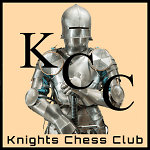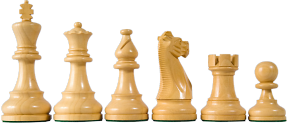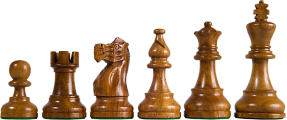
Knights Chess Club
Welcome To All, Young And Old


The History of Chess
The game of chess was invented in north-west India sometime in the sixth century AD. Its Sanskrit name, chaturanga, indicated its origin as a war-game since it means 'four-armed' and thus clearly applies to the four arms of an Indian army: infantry, cavalry, elephants and chariots.
Very early on, in the late sixth century, the game spread to Persia and from there to the Byzantine empire. In both cases it was the same slow game that it had been in origin and its popularity was centered in courts and amongst the learned.
This popularity was given added impetus when the Arabs conquered the Sassanian dynasty in Persia round about the middle of the seventh century. The first chess theorists of the game were the Arabs and indeed it was they who introduced the algebraic system of notation.
By early medieval times the game had come to Western Europe, to Italy, Spain, France and England. The Vikings, in particular, were a strong influence in advancing the game throughout France, England and Iceland. The earliest known chess set, the Isle of Lewis chessmen, is supposed to have been brought there by Vikings from Iceland in the eleventh century.
By the sixteenth and seventeenth centuries it was the Italians, with Leonardo da Cutri and Paolo Boi and later with Greco and Salvio, who dominated.
In the eighteenth century France with the great Philidor led the world. Now the game was passing from the courts and aristocracy to the men of literature and science, in fact to the middle classes, and theory was being rapidly developed on a modern scale.
This in turn meant that England, where the middle classes really first came to some sort of power, was a great centre for chess. Staunton wrested the supremacy from France in a famous match against Saint-Amant, and then, with the remarkable comet-like interval of the great US master Paul Morphy, the chief power in chess came to be Germany.
By the twentieth century chess had spread all over the world and the two chief powers were Europe and America. FIDE, the World Chess Federation, was founded in 1924 and organized team championships of the world were instituted under its auspices. In the 1930s the US team, headed by Rubin Fine and Samual Reshevsky, became World Champions but they were overhauled by the Soviet Union which became far and away the dominant chess power.






